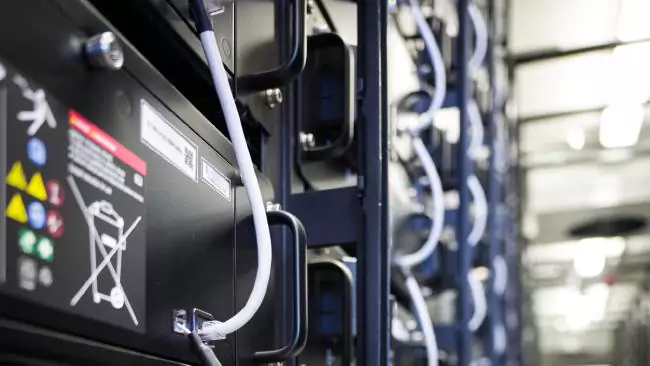A home conflagration caused by an exploding lithium home storage battery will be just like a Tesla car lithium battery fire - only much bigger with toxic smoke billowing everywhere.
What will the home insurance company say ? Sorry you are NOT COVERED!!!Battery sector fights fire-risk rulesGRAHAM LLOYD Environment Editor Sydney The Australian 12:00AM July 11, 2017

Industry groups and manufacturers say modern solar batteries are designed not to overheat.
The fast-growing solar battery storage industry is engaged in a furious 11th-hour battle to kill new regulations that would force homeowners to build a separate “fire bunker” housing for battery installations.
Industry and consumer groups have until August 15 to challenge draft recommendations issued by Standards Australia that could dramatically slow the uptake of residential battery storage.
Final draft recommendations include a ban on in-house battery banks and are designed to avoid a repeat of the pink batts debacle in which a well-intentioned environmental initiative proved deadly.Industry groups and manufacturers say modern solar batteries are designed not to overheat and have described the new rules as overkill.
Sales of battery storage have risen to 6750 battery installations last year, up from 500 in 2015, according to a recent survey. Solar energy equipment supplier SunWiz forecasts at least a threefold increase this year.
Currently there are no Standards Australia regulations for in-home battery installations. The Clean Energy Council issued industry rules last year limiting home batteries to “a dedicated equipment room or battery room”.
The council said installers should take account of ventilation, extreme temperatures and exclude “habitable rooms” including bedrooms, living rooms, kitchens, sunrooms, bathrooms or laundries. Its rules included an exemption for “all-in-one” battery and inverter control systems.
However, the draft Australian Standards go much further.
Lithium ion batteries are classed as “fire hazard class 1”, and under the draft rules they must not be installed inside a domestic dwelling, within a metre of any access or egress area or under any part of a domestic dwelling.
To qualify, lithium ion batteries must effectively be housed in a 3m x 2m fire shelter with eaves.The council’s voluntary code outlines the concerns. “Some lithium-based batteries can fail due to internal overheating, in a process known as ‘thermal runaway’,” the council says. “The normal chemical reactions within the battery during charging are exothermic (heat-generating).
“If this heat is not able to dissipate, or the battery is overcharged for a long duration, the rate of chemical reaction can then speed up, which in turn increases the battery temperature further, in an increasing cycle until the battery is physically damaged.
“Once this happens, there is a risk of fire and/or rupture of the battery, with emission of toxic material,’’ the council says.
Standards Australia chief executive Bronwyn Evans said the draft report was a “comprehensive document” that was “the result of many hours of work from experts representing industry, government and community interests”.
“The work is being driven by a range of stakeholders from all parts of industry who have an interest in standards in Australia that support the safe uptake of battery-storage systems in all buildings, but particularly in homes,” she said.
Dr Evans said the standards were devised to give consumers and industry confidence in innovative solutions.
“They should give markets and governments confidence when making regulatory and investment decisions and get the balance right between all the different interests and voices in the room,” she said.
At the end of the consultation period “we will have an installation standard for battery storage systems which supports the uptake of systems in Australia”.
Dr Evans said battery storage had been a focus of Chief Scientist Alan Finkel’s review into the future security of the National Electricity Market, released last month.
https://www.theaustralian.com.au/national-affairs/climate/battery-sector-fights-...

 Forum
Forum

 Home
Home 

 Album
Album 

 Help
Help

 Search
Search

 Recent
Recent 

 Rules
Rules 

 Login
Login

 Register
Register





 Pages:
Pages: 

